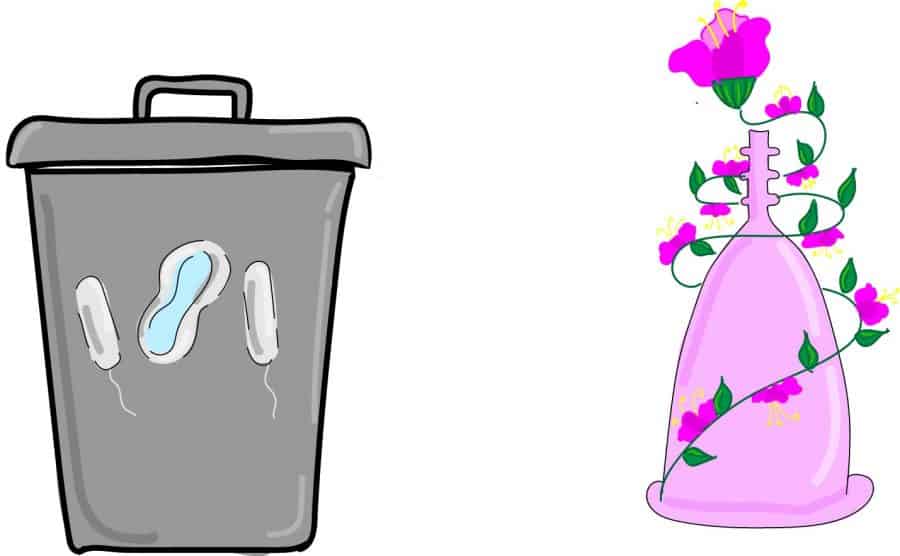UA Generation Action hosts menstrual cup drive
June 2, 2021
The UA chapter of Generation Action, a national organization affiliated with Planned Parenthood, has worked for the past year to educate UA students on reproductive health and rights.
As a newly active organization, Generation Action’s cabinet has made it a priority to inform members of the UA community about sexual health, inclusivity and elections with an overall aim to promote tangible progress on campus.
Last semester, they worked toward their goals of promotion with a spring service project: the OrganiCup donation drive.
Marie Neubrander, the president of UA Generation Action and a senior majoring in math and computer science, said their chapter was motivated to host a donation drive after UAB’s chapter did one in Fall 2020.
The organization joined the Campus Cup program, an initiative that allows universities to partner with OrganiCup, a company that sells environmentally friendly menstrual cups for an “easier, healthier, greener” option to pads and tampons. OrganiCup also distributes free menstrual cups to students via organizations like Generation Action.
The brand features three cup sizes depending on the user’s anatomy and whether they have given birth.
UA students signed up from March 3 to 17 and chose between delivery or pick up from the Ferguson Student Center or their Greek life residence.
Ashley Whitmire, the event planner for UA Generation Action and a sophomore majoring in political science and psychology, said many women in Greek life were interested in the cups due to its rise in popularity and cost savings.
Whitmire took time during one of Kappa Alpha Theta’s chapter meetings to inform fellow members about how to use the cup and its benefits. Many of them had heard about menstrual cups before, but were curious about how to use one.
“There were definitely some mixed reactions. No one was like, ‘Ew, no,’” Whitmire said. “Everyone was interested, but a lot of people kind of had reservations.”
Some of the common concerns with the menstrual cups were that they would be uncomfortable to wear, could leak easily or were simply difficult to insert.
OrganiCup provided an instructional video and webpages with various information to provide during sessions for FAQs.
These tools helped Whitmire address the women’s apprehensions and answered other questions, including “Can I use it in a public restroom?” and “Can I insert an OrganiCup if I have an IUD?”
Neubrander witnessed the same curiosity while running the cup sign-up and pick up table at the Ferguson Center.
“We definitely had people come up and have a reaction of ‘I’m scared and concerned, but I’m also very intrigued,’” she said.
According to OrganiCup’s website, using a menstrual cup helps decrease period product waste. One person contributes 528 disposable period products into waste fields in two years. OrganiCups last up to 10 years.
The company estimates the waste of more than 400,000 period products could be avoided over the next two years if all students continue to use its product instead of disposable period products.
Neubrander said OrganiCups are good for the environment because they can be reused, but they also present a “huge opportunity for financial saving.”
Rebecca Mhagama, the vice president and data manager of UA Generation Action and a sophomore majoring in public relations, said another benefit of OrganiCup is health benefits that other menstrual cup brands lack.
“OrganiCup is one of the safest options since it has a lower rate of infection from Toxic Shock Syndrome and is latex-free,” she said. “It can also be used for up to 12 hours so it’s really useful when you have to be at an event all day and don’t want to change your pad or tampon.”
Toxic Shock Syndrome (TSS) is a severe and often life-threatening complication that occurs when certain bacteria enter and infect the bloodstream by releasing toxins. This can lead to organ damage or other illness.
One of the most common ways to become infected is to insert a tampon or menstrual cup and forget to remove it. Lauren Wasser is one of the most well-known cases of TSS and had to have both her legs amputated due to lack of blood flow — a common symptom of TSS.
Because of the lack of awareness and education about menstrual cups, young people are hesitant about the product. OrganiCup advertises that nine out of 10 people who try it continue to use it.
Riley Watson, UA Generation Action’s social media co-chair and a freshman majoring in aerospace engineering and math, said her friends who use menstrual cups regularly have not reported any negative feedback from their experiences.
“I’ve really never came across anyone who had a very negative mindset,” Watson said. “I feel like, in general, everybody was very open-minded which was really awesome.”
By the end of the campaign, 774 UA students signed up to receive an OrganiCup.
Regardless of the success of the campaign, members of Generation Action said they hope to create awareness for students in the fall as social distancing restrictions change.
Mhagama said social media and flyers played a role in the success of their drive, but they’d like to engage more with students in person in the future.
“We hope with next semester’s COVID-19 restrictions lifting that we’ll be able to have more in-person campus and out-of-town events,” Watson said. “All encompassing events to offer to those who want to get involved in reproductive justice.”





















